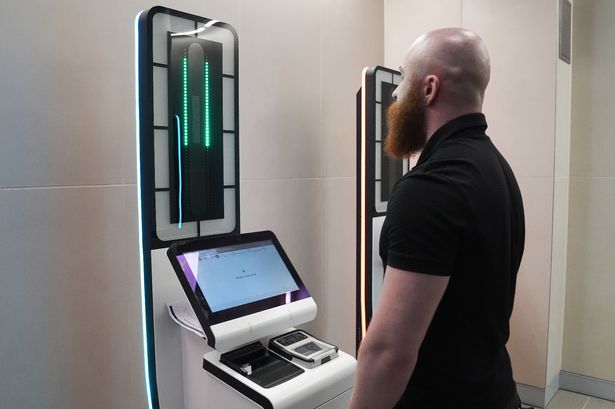URGENT UPDATE: New EU border checks are now in effect for travelers entering Spain, Greece, Portugal, and other Schengen Area nations as of November 8, 2025. The Entry/Exit System (EES) is rolling out, requiring non-EU nationals to prepare for enhanced security protocols, including biometric data collection upon arrival.
Travelers are advised to anticipate longer wait times at border controls due to the new system, which replaces traditional passport stamping with electronic registration. This change is aimed at improving border security and streamlining entry for tourists, but initial experiences may be challenging.
Why This Matters: For UK nationals planning trips to popular destinations like Spain, Portugal, and Greece, understanding the new EES requirements is crucial. The system mandates that first-time entrants will have their facial images and fingerprints recorded, along with passport details and travel dates. Failure to comply or prepare adequately could lead to significant delays at airports.
What to Expect: The EES implementation means that travelers will undergo biometric registration at border kiosks or e-gates during their first entry. Subsequently, returning visitors will benefit from expedited processing due to stored data, but the initial visit may take several minutes per person. With the potential for longer queues, experts recommend planning for alternative travel routes if you are on a tight schedule.
Paul Paddock, CEO of Post Office Insurance, emphasizes the importance of being informed. “The EES is designed to enhance security and efficiency, but travelers should be prepared for the changes to avoid last-minute stress,” he said.
Key Details:
1. All non-EU nationals must have biometric data collected for stays up to 90 days within any 180-day period.
2. Data collected includes facial images, fingerprints, passport details, and travel history, retained for three years for standard entries and up to five years for overstays.
3. Exemptions include EU/EEA/Swiss citizens, certain residence permit holders, and children under 12, who will only have their facial images captured.
Preparation Tips: To navigate the new border checks smoothly, travelers should:
– Ensure passports are valid for at least three months beyond the trip and issued within the last ten years.
– Familiarize themselves with their entry airport’s EES setup and expected biometric checks.
– Keep essential documents like travel insurance and accommodation confirmations easily accessible.
As the EES is gradually implemented, travelers are encouraged to stay updated and share this information to help others prepare. The urgency of these changes cannot be overstated; being informed is key to a hassle-free travel experience.
Stay tuned for more updates as the situation develops!







